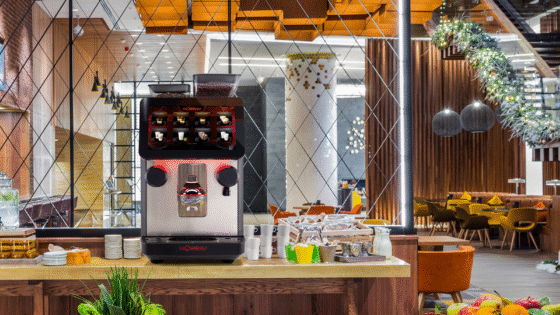For four weeks, Hotel Designs is working with author and CEO of DHM, Adam Hamadache, in order to explore the minefield of marketing. In his first article in the series of four, Hamadache explains why every hotel should be looking into new ways to market their business…
We’ve all seen those ads that seemingly ‘follow’ us around the internet. One second, you’re browsing for a new pair of shoes, five minutes later you’re being unwittingly followed by that very pair of shoes on a website completely unrelated.
If it’s not happened to you yet with footwear, it’s almost certainly occurred on your web browser as a result of searching hotels on Expedia or Booking. Minutes, hours or even days later, that hotel you liked the look of in the Cotswolds for the weekend break you’re planning is displayed in front of you again, complete with price, image and a ‘book now’ button.
Google refers to this form of advertising as remarketing – so named as they are ads fed to you only once you’ve visited a particular website or webpage, and literally re-marketed back at you, in a bid to encourage you to return and complete your purchase. Facebook also runs something similar across its network of both Facebook and Instagram.
Needless to say, it’s an incredibly effective way of reminding hotel bookers to return and complete their booking – especially leisure bookers who are looking for that special-occasion stay and perhaps wanting to spend a little more than usual.
Consumers have more choice than ever before, which has inevitably meant the time taken to successfully choose and book a hotel has become longer in recent years. In some cases, leisure bookers are taking weeks to choose the right hotel, on the right platform that represents the highest value based on their own individual booking criteria.
This is why remarketing is so effective – you only need to have a potential booker visit your website once, and Google will allow you to follow that customer for as long as 18 months – for free!
Seems too good to be true, but here’s how it works: a simple piece of coding is placed on your website, dropping a cookie on the user’s web browser. That cookie then triggers your hotel’s ads on a pay-per-click (PPC) basis on websites across the internet. Impressions (views) of these ads cost you (the advertiser) absolutely nothing.
Let’s put this in more pragmatic terms: using this form of advertising, you’ll be able to advertise back to anyone that has previously visited your website in excess of 40,000 times, for about the cost of £40 per month. That would be the equivalent of running advertising all the way around Chelsea Football Club’s stadium, full of potential customers that have shown some interest in your hotel in the last month, and paying just £40 for the privilege.
The reason it’s so inexpensive is primarily due to the click-through-rate (CTR) being extremely low. These ads will appear in the background, gently reminding your potential customers about your hotel but few will click (and you only pay when someone clicks). Rather, they’ll probably need to see your ad 30, 40, 50 times before any action is taken.
Despite the cost being so low, and the targeting being so high, the real magic of this form of advertising, arguably is that so few hotels take advantage of this clever platform. It’s rare to see an individual or an independent hotel advertising in this way. This ultimately means that implementing this form of advertising can give your hotel a distinct advantage over your competition, not to mention the online travel agents!
“At present, Google allow you to run these ads for a maximum cookie duration of 540 days.”
In terms of the design of these ads; simple is best. An eye-catching image, your hotel’s logo, a ‘book now’ button, and on some of the larger-sized ads, a ‘book-direct’ message is advisable. These ads shouldn’t be a platform to sell all the benefits of the hotel, rather an opportunity to remind the potential customer of your business and hope they return to complete their booking.
At present, Google allow you to run these ads for a maximum cookie duration of 540 days. This means that your ads can be shown to each individual web-browser for up to 18 months, or until they decide to clear their cookies. Given the low cost of this advertising, it’s advisable to utilise this maximum length, as it can never hurt to gently stay in touch, reminding the web-browser that you exist and are open for business.
Typically, best-practice dictates that the style and design of these ads changes every few months, and these ads can even be animated to really catch the eye of your next hotel guest.
About the author
Adam Hamadache is the author of Amazon No.1 best-selling hotel book The Direct Method and the CEO of hotel marketing agency DHM. Having worked with hotels (including his own) for more than 10 years, Hamadache has created a proven marketing strategy to reduce over-reliance on expensive third party bookings.
Main image credit: Pexels




